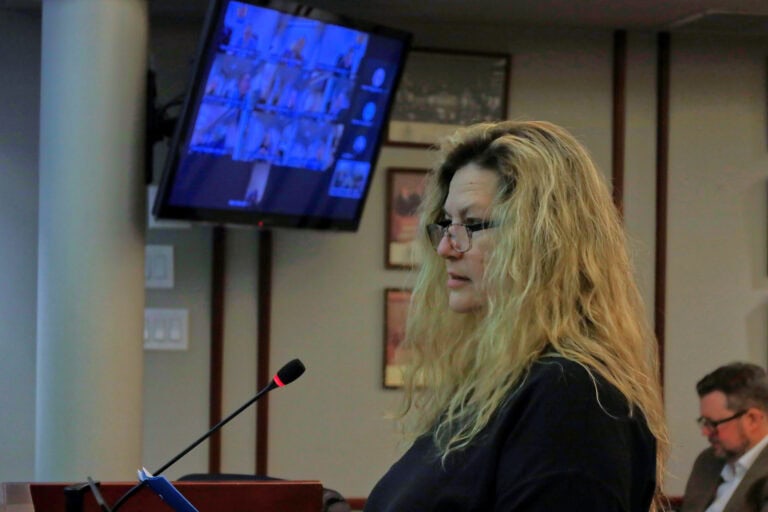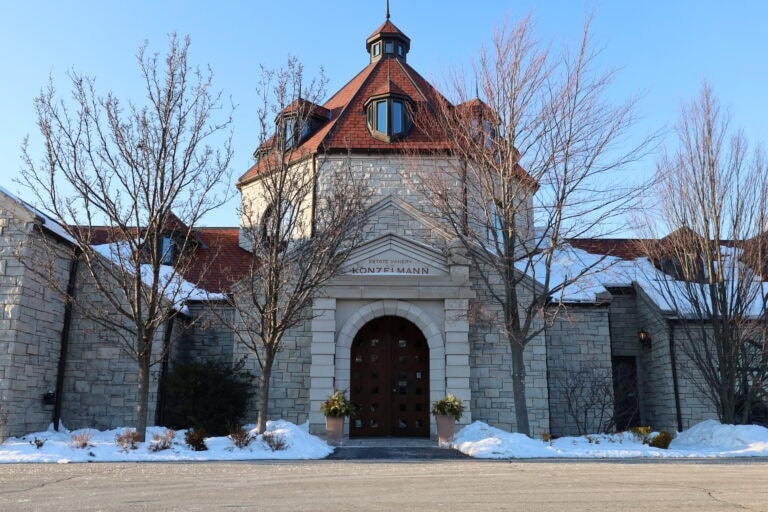As the strike by Niagara College’s support staff enters its second week, the College Employer Council says negotiations remain stalled and the two sides are far apart.
“There’s been no negotiations (since the strike started),” said Graham Lloyd, CEO of the council — the non-profit corporation negotiating with the union, as mandated by the Ontario government.
Roughly 10,000 support staff at Ontario’s 24 public colleges walked off the job last Thursday, including about 400 from Niagara College. They are represented by the Ontario Public Service Employees Union, or OPSEU.
At the Daniel J. Patterson campus in Niagara-on-the-Lake, picketers have been walking in two shifts: 8 a.m. to noon and noon to 4 p.m. They’ve been carrying signs, directing traffic and playing music to keep spirits high.
As of Monday, the third day of the strike, picketers told The Lake Report spirits remained strong.
Brandon Friesen, a programming analyst in Niagara College’s information technology department for 18 years, has been playing music on the picket line to help lift morale.
Staff like him serve in a variety of roles across campus that don’t involve teaching in classrooms, such as in disability services, facilities and trades, co-op placement co-ordination, the office of the registrar, food services and more.
“It is a bit shocking,” he said of the strike’s midnight start. “I was on strike back in 2011, when there was a support staff strike. So, I’ve been through it before. Not a lot of people have that are here. It feels a bit different this time.”
Friesen said this year’s strike feels more tense.
“It feels like the management is pushing a little bit harder this time,” he said. “Whereas back in 2011, I think the wording and the messaging was a bit lighter. It was more supportive, I think, compared to what it is now.”
While he’s generally satisfied with the current contract, Friesen said proposed changes threaten key worker protections.
“They want to take away a lot of our protections,” he said. “They want to take away our ability to bump,” he added, referring to the process that lets laid-off employees move into a lower-paid role rather than lose their jobs entirely.
He also pointed to a proposal that would allow layoffs without a position being declared redundant.
“There are some people for whom these protections are very important,” he said, noting that as a long-time employee, he feels relatively secure.
Bob Holder, president of the union’s Local 243 — which represents full and part-time support staff at Niagara College — is also on the union’s provincial bargaining team.
He said there are about 150 different support staff roles across the college system, all essential to daily operations. On the picket line, The Lake Report spoke with staff working in IT, international student services, nursing and administration.
“We are everything from in the classroom, in the labs with the students, to non-academic areas like our facility services that maintain the building or doing the financial side of things,” Holder said.
Support staff also help with student recruitment, guide students throughout their time at college, and assist them in finding employment after graduation, he added.
Holder said job security is the primary issue at the bargaining table, though different contracts apply to full- and part-time staff.
“We have qualified support staff that have the necessary credentials to do their jobs and there’s a lot of times that we’re finding management is also doing some of the support staff work,” he said. “That takes away from actually having to have support staff do the work that we do.”
He said many members are precariously employed — in casual, temporary or part-time roles — and often struggle financially.
“They need other jobs in order to survive,” he said.
Lloyd said the union’s demands are unreasonable and highlighted four: a freeze on all staff reductions for at least three years, regardless of the reason; no campus closures or mergers for at least three years; a ban on contracting out any support staff work; and a requirement that only support staff perform support staff duties.
“It’s conditions like these that bog down systems,” Lloyd said.
He added that the union’s proposals would cost about $400 million — an amount he called unrealistic given the current fiscal environment.
Jakob Degazio, a union volunteer and member of the IT services department at Niagara College, said he didn’t expect talks to break down and hopes for a quick resolution.
“I’d like to get back to the college as quick as we can,” he said.
Lloyd echoed the desire for a resolution, but said progress requires compromise.
“We are hopeful and urge the union to come back to the table and negotiate reasonably, by dropping the demands they know we can’t accept,” he said.
Bianca Giacoboni, press secretary for the Ministry of Colleges and Universities, said the province is monitoring the situation and hopes for a resolution that “puts students first.”










